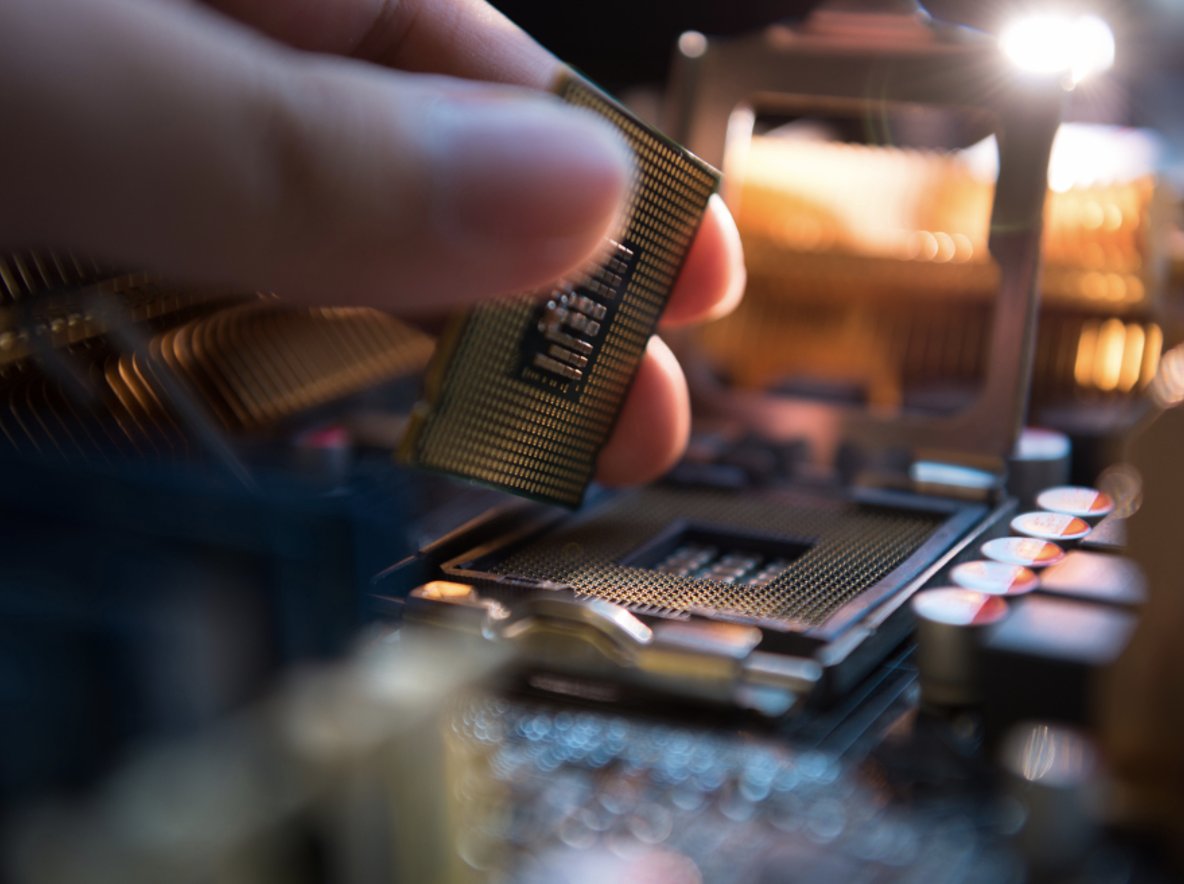You’re in the middle of an intense gaming session when, suddenly, your game starts to lag and stutter. Lag and long loading times can indicate increased CPU usage. High CPU usage during gaming can be a major buzzkill, causing performance issues and diminishing your gaming experience.
Discover the factors contributing to increased CPU usage during gaming and uncover the secrets to enhancing your gameplay. Whether gaming on a pre-built gaming PC or a custom rig, optimizing your CPU performance is crucial for optimal gaming performance.
Why Is My CPU Usage So High?
Various factors can cause high CPU usage during gaming, and understanding these is the first step toward rectifying the issue. Some common problems that can increase your CPU usage include:
- Background processes: Your PC might be running numerous background processes that consume CPU resources. These processes could include system and software updates or applications you’re not actively using.
- Resource-intensive applications: Gaming often requires substantial CPU power, and resource-intensive games can push your CPU to its limits. Running these demanding titles alongside other CPU-hungry applications can cause high usage.
- Viruses or malware: Malicious software can hijack your CPU’s resources for various purposes. Malware can run silently in the background, causing a spike in CPU usage without your knowledge. Additionally, tools like Cisco Umbrella can play a crucial role in network protection, offering an added layer of security by blocking malicious internet domains and preventing malware communication, which can also help maintain optimal system performance.
- WMI provider host: The Windows Management Instrumentation (WMI) Provider Host is a legitimate Windows process, but it can sometimes consume an excessive amount of CPU resources if it encounters issues or conflicts with other software.
- Improper configuration: Incorrect system settings or driver issues can lead to high CPU usage. Outdated or incompatible drivers, for instance, can cause performance bottlenecks.
- Dirty fans and cooling components: Over time, dust and debris can accumulate in your PC, including on CPU fans and cooling components. This buildup can result in overheating, forcing your CPU to work harder to maintain optimal temperatures.
High CPU usage can result in frame rate drops, lag, and stuttering in games, which can be especially frustrating during online multiplayer matches or graphically demanding game titles.
How to Lower Your CPU Usage While Gaming
To effectively reduce your CPU usage during gaming sessions and ensure a smoother gameplay experience, consider the following strategies:
Close Background Programs
Background programs running on your computer, such as software updates, system maintenance tasks, or unnecessary applications, consume valuable CPU resources. To address this, use the following steps:
- Open task manager: Press Ctrl + Shift + Esc or Ctrl + Alt + Delete and select Task Manager. This enables you to see which processes are consuming the most CPU power.
- End task: Identify non-essential processes, such as web browsers and file transfer applications, and end them by right-clicking and selecting “End Task.” Ensure you don’t close critical system processes like svchost.exe or lsass.exe.
- Startup programs: Prevent unnecessary programs from running at startup. You can manage startup programs in the Task Manager or system settings.
Lower the Resolution In-Game
Reducing the in-game resolution can lower CPU usage, as rendering fewer pixels demands less processing power. For instance, attempting to play graphically demanding titles like Red Dead Redemption 2 or Call of Duty: Modern Warfare at a 4K resolution on an aging CPU can cause excessive CPU load and subpar performance.
Adjusting the resolution to 1080p can alleviate the strain on your CPU while still enjoying a smooth gaming experience. Start by adjusting:
- In-game settings: Most games allow resolution adjustments. Lower it to reduce CPU load without sacrificing visual quality.
- Aspect ratio: Keep the aspect ratio consistent with your monitor for optimal visuals.
- Scaling: Some games offer a scaling option, which can help maintain visual fidelity while lowering the resolution. Experiment to find the right balance.

Enable or Disable V-Sync
Vertical Synchronization (V-Sync) can affect CPU usage and gameplay smoothness. Depending on your system’s capabilities, you may need to enable or disable it:
- Enable V-Sync: If your GPU consistently produces more frames per second (FPS) than your monitor’s refresh rate (e.g., 60Hz), enabling V-Sync can help reduce screen tearing. This can lead to lower CPU usage as the GPU doesn’t work unnecessarily hard.
- Disable V-Sync: Disabling V-Sync can reduce CPU stress if your system struggles to maintain the monitor’s refresh rate. This prevents the CPU from waiting for the GPU, allowing it to handle other tasks efficiently.
Check for Viruses and Malware
Malware and viruses can stealthily consume CPU resources, leading to high usage during gaming. To ensure your system is clean:
- Run antivirus software: Ensure you have reliable antivirus software installed and up-to-date. Perform regular scans to detect and eliminate threats.
- Use anti-malware tools: Use anti-malware tools like Malwarebytes besides your antivirus software for a comprehensive security sweep.
- Safe browsing: Practice safe internet habits, avoid suspicious websites, and be cautious with email attachments.
Overclocking
Overclocking your CPU involves running it at higher clock speeds (the number of cycles your CPU executes per second) than its stock settings. This can lead to improved gaming performance but also increase CPU power consumption and heat generation. Ensure your CPU is unlocked and suitable for overclocking before attempting this.
- Software overclocking: Use software utilities provided by your CPU manufacturer or motherboard manufacturer. Adjust clock speeds and voltages incrementally, testing stability after each change.
- Cooling: Ensure your system has adequate cooling to handle the increased heat generated during overclocking. Upgrading your CPU cooler may be necessary.
- Monitor temperatures: Keep an eye on your CPU temperatures to prevent overheating. Use tools like CPU-Z or HWMonitor to monitor temperature changes.
Undervolting
Undervolting is the opposite of overclocking, where you reduce the CPU’s voltage to lower power consumption and heat generation while maintaining performance. It can be particularly useful in laptops with limited cooling capabilities, extending the battery life and reducing heat generation during gaming sessions. Not all CPUs support undervolting, so check compatibility before proceeding.
To try undervolting your gaming PC, use:
- Undervolting software: Use software tools like ThrottleStop or Intel XTU (Extreme Tuning Utility) to undervolt your CPU.
- Stress testing: Use benchmarking and stress-testing tools like Prime95 to assess the stability of your undervolted CPU. Ensure it doesn’t lead to system crashes or instability.
Install a New CPU

When your current CPU struggles to handle modern games, upgrading to a newer one can be the most effective solution. To ensure a successful CPU upgrade, follow these steps:
- Compatibility check: Research and select a CPU compatible with your motherboard’s socket type. This ensures that the new CPU physically fits and functions in your current setup.
- Performance comparison: Before deciding, consult gaming performance benchmarks to find the best CPU within your budget and tailored to your gaming requirements. For instance, upgrading from an older Intel Core i5-6600K to a more recent Intel Core i7-10700K can deliver significant performance improvements in CPU-intensive games like Assassin’s Creed: Valhalla or Cyberpunk 2077.
Enjoy a Smoother Gaming Experience
High CPU usage during gaming can be a frustrating obstacle to an otherwise enjoyable experience. However, by identifying the causes of elevated CPU usage and implementing the right strategies, you can lower your CPU usage and enjoy smoother gameplay.
